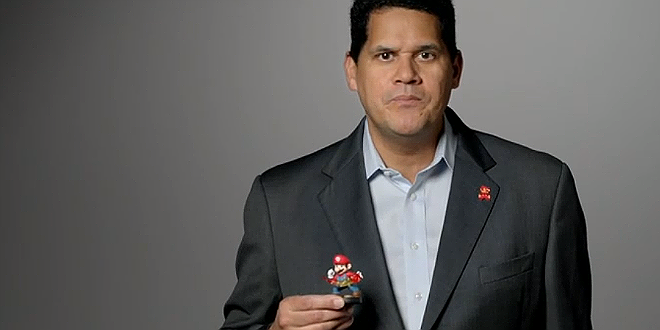With Nintendo dipping its toes into the deep waters of DLC and showing a tenacious interest in expanding its amiibo lineup, discussion has grown about how consumer friendly some of Nintendo's DLC practices are. Is amiibo physical DLC? Where is the line crossed between fun extras and significant content? What might the future hold for Nintendo as it merges cautiously into the digital age of add-on content?
I spoke with James Galizio and Georgina Young, writers for Techraptor who sit on opposite sides of this issue. Georgina seeks to defend Nintendo's reputation, which has come under fire in recent months. James, conversely, will prosecute the company. I will present questions to the two debaters, and they will have to respond to each other as well. To begin with, I asked a general question, to better understand their viewpoints and feelings about Nintendo in regards to their DLC practices.
Bryan: How do you feel about Nintendo's current and recent practices with DLC? Do you believe they provide value to the customer or are negative to their products/consumers?
James: I'd have to say that my thoughts are middling, at best; Nintendo has had some great examples of how to do DLC right in the past (Hyrule Warriors and Mario Kart 8 come to mind), but even from the beginning their DLC practices have been shaky, and in my opinion it's only worsened in recent months. It would be easy to point the finger at amiibo—and they certainly don't help things—but I honestly think that they're just a symptom of the overall problem as a whole, albeit the most noticeable one.
Simply put, Nintendo has taken the cue of excessive on-game dlc. This doesn't seem so bad when we're talking Animal Crossing: Happy Home Designer since, technically, it starts off as a free-to-play title, but when we're getting the same sort of tactics in a $60 title like Splatoon, the problem becomes obvious. What's even worse about this practice is that with amiibo some of this DLC is inherently limited, and only a certain amount of people will ever be able to experience their content. It's not so much an issue in Mario Party 10, where the amiibo game boards were small, and nearly every character in the Super Mario set is manageable enough to find—except for two notable exceptions, which don't unlock anything exclusive anyway—or in titles like Kirby & The Rainbow Curse, where the locked content is a few abilities that hardly impact the game. But the issue still does exist in those titles. By far, however, Splatoon is the worst at this.
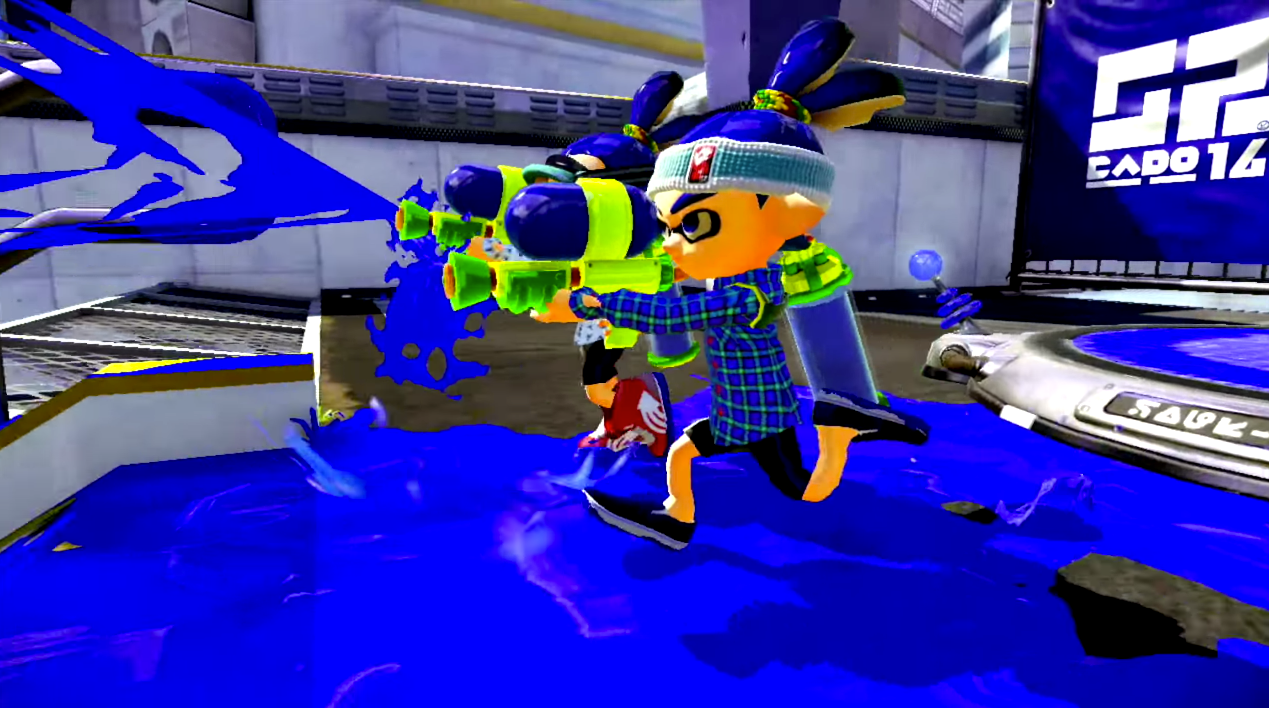
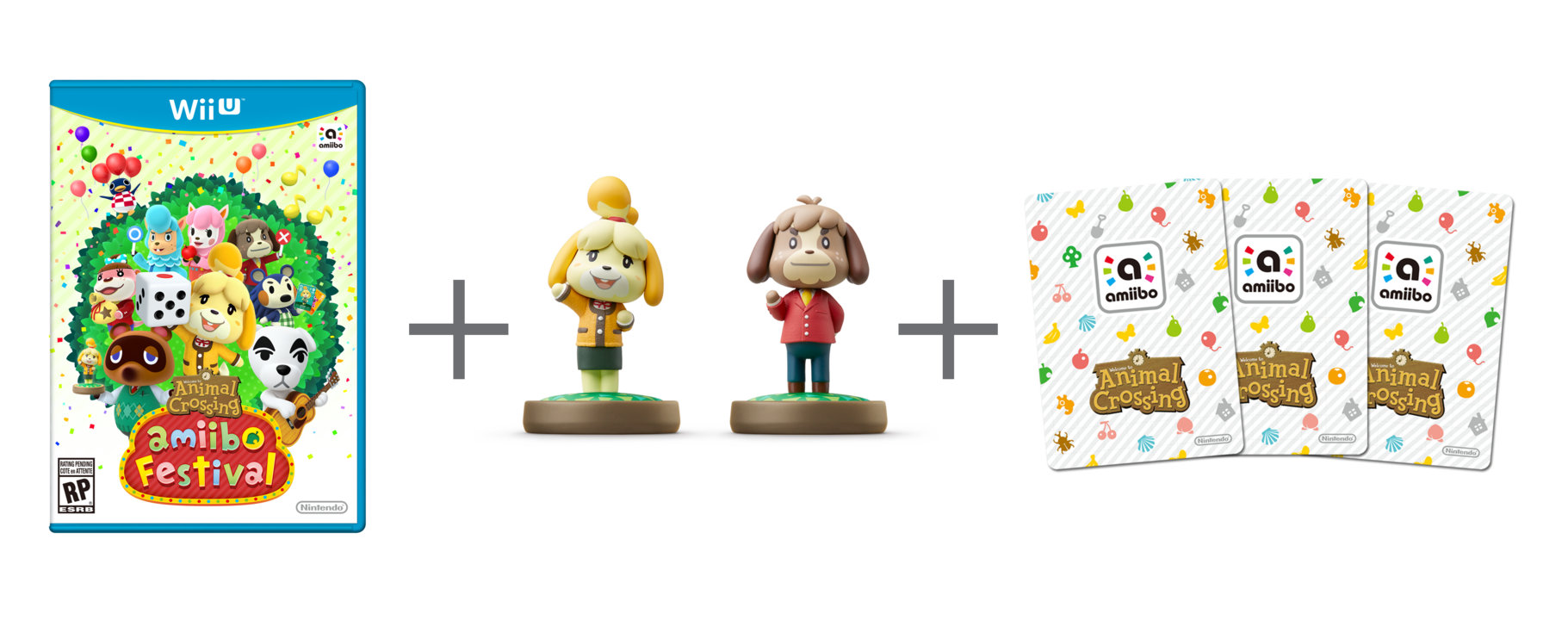 Bryan: Excellent response James, and I couldn't agree more on the Splatoon thing!
Bryan: Excellent response James, and I couldn't agree more on the Splatoon thing! Georgina: As an "old skool" gamer paying anything after you have already purchased a game is a pretty alien and disturbing concept to me. But one company showed me a world where I could get 50% more content for 25% of the price, where physical DLC is usable across multiple titles, and where new content is updated for free, months after release. That company is Nintendo.
Hyrule Warriors, one of the best games of 2014, had a whopping 4 DLC packs announced at PAX, each paying homage to a different Zelda title. And yet every player still received 3 new characters and extra modes.
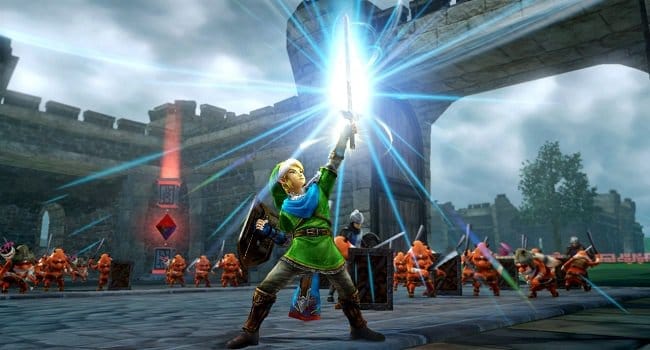
Perhaps the greatest DLC of all time is that of Mario Kart 8. Here consumers got 50% more tracks and new characters for just $15. And yet Nintendo still made the much called for 200cc mode free for everyone.
And then there are amiibo. People mock them and yet Nintendo's figures not only offer consumers merchandise from previously limited series such as Xenoblade but also DLC, costumes and challenges usable across multiple Nintendo titles.
In a world of $5 one time fatalities and Assassin's Creed Unity style "pay to complete game" DLC, Nintendo have so far kept their morals where their mouth is. They consistently listen to consumers and deliver what they want. Nintendo DLC is what DLC should be, more game for your money, what more could we want?
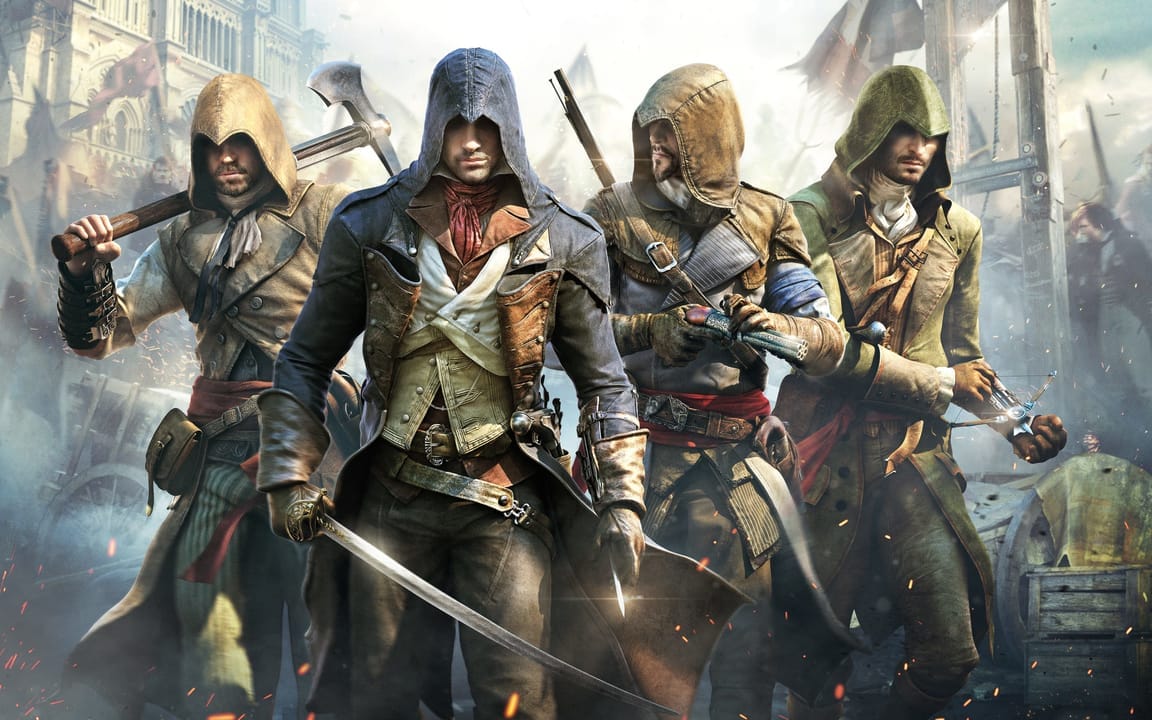
Bryan: Excellent response as well Georgina, I particularly like your point about how Hyrule Warriors and Mario Kart 8 both had free and paid DLC, making it seem more palatable to me. James, how do you respond to Georgina's arguments? In particular I'd like to hear how your thoughts on her statement: "Nintendo DLC is what DLC should be, more game for your money, what more could we want?"
James: amiibo is, at it's best, a neat little bonus that you can get in various titles, but the nature of the beast means that this DLC is going to be disc-locked content. Instead of it being "true" DLC, you're paying who knows how much money just to get content off of a disc that you already paid for to begin with. I'd be lying if I said that I didn't think the practice was deplorable to begin with, but the shift towards each new game release coming with their own wave of amiibo that ONLY works with that game and the aforementioned issue with both on-disc DLC, and limited ones at that—it's just insane to say that amiibo are a good deal for the consumer.
Yes, the merchandise is great—the only reason that I bought my Shulk amiibo is because I wanted to put it on my desk—but amiibo AREN'T just merchandise, and the promise that the figures would work across titles is quickly disappearing. If amiibo continued to work as initially promised, there were ways to get the DLC without buying the specific figures, and if any content that was specifically locked to the disc was just "small bonuses," then the issue would be moot.
I'd like to mention that I'm only arguing against the assertion that "Nintendo DLC is what DLC should be," as the mere existence of some of the more heinous examples of the amiibo problem are perhaps some of the worst examples of DLC that the industry has seen yet. Yes, Nintendo has done DLC well—I've mentioned it myself, and it's great in *those specific instances*—it's just important to note that there are other instances where their DLC has been either par for the course, or worse.
As for the "listening to consumers" bit, they've mainly given lip service. A few select Fire Emblem amiibo have been reprinted—which, if they hadn't, I would've been even angrier at them, as I haven't really gone into Codename Steam's use of the figures—but that's about as far as it has gone. As long as the figures are paywalling relevant content for each game, then they are anti-consumer. It's just worse that players can't, in many cases, unlock that content if they wanted to.
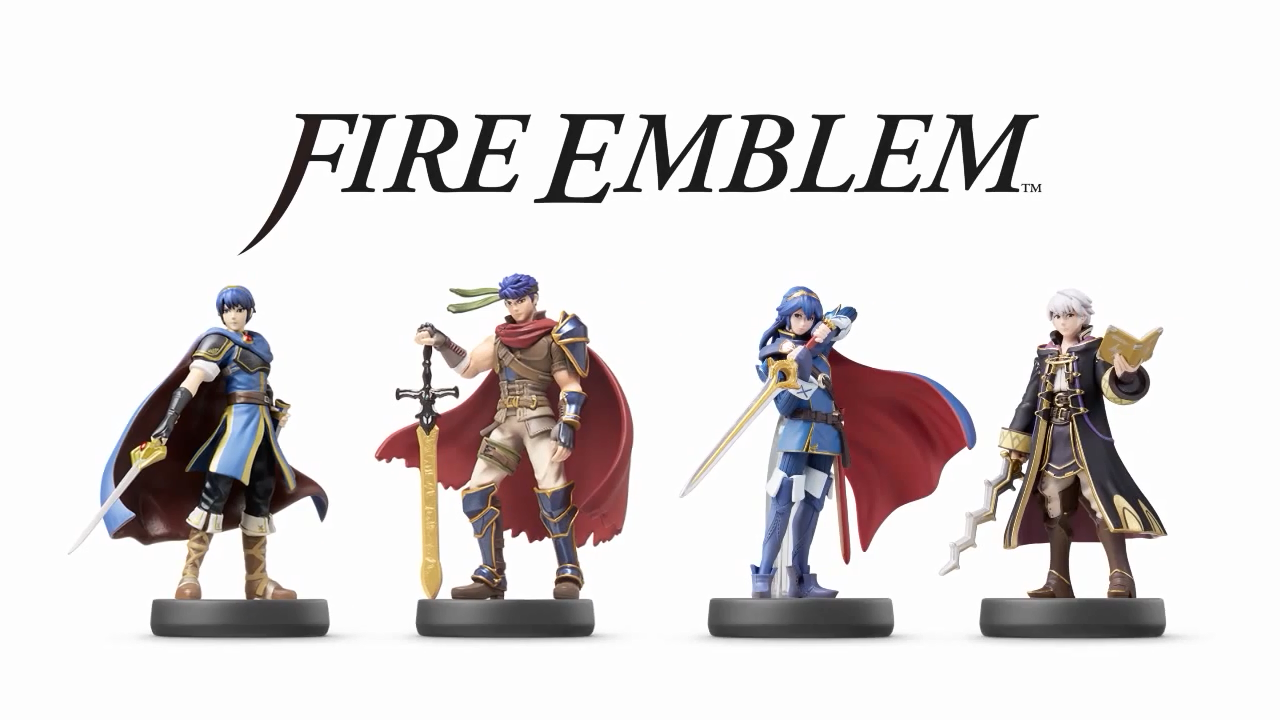
Bryan: Very well put James, it seems we are all in agreement that at least some of Nintendo's DLC has been well-done, so there is clearly a condition being met that divides people. Georgina, how do you respond to this? How you do you feel about Nintendo's growing tendency to ship a new amiibo with each major release, such as the Chibi-Robo amiibo? Does the practice inherently have flaws, or only with poor execution? Also, how do you feel about amiibo unlocking content already on the disc?
Georgina: I think we are in agreement that amiibo are far from perfect. But they are also completely new territory for Nintendo and expand far beyond the existing Disney and Skylander figures. Personally, I think we need to examine the base product before crying foul of on disc content or "what could have been." For example, is Splatoon better than most full price games released this year? Is the consumer getting $60 worth of content? And is Nintendo maintaining the game with new, free content constantly being released? The answer to all this is yes. True, amiibo offer challenges—nothing new but based on the existing single player—and new costumes that come from those challenges, but Splatoon can still be fully enjoyed without these extras, and stat boosts from DLC are different not better. This means that the general consumer gets a fantastic game while those who shell out $30 for amiibo will be receiving the "more game for your money" approach that Nintendo has always promised.
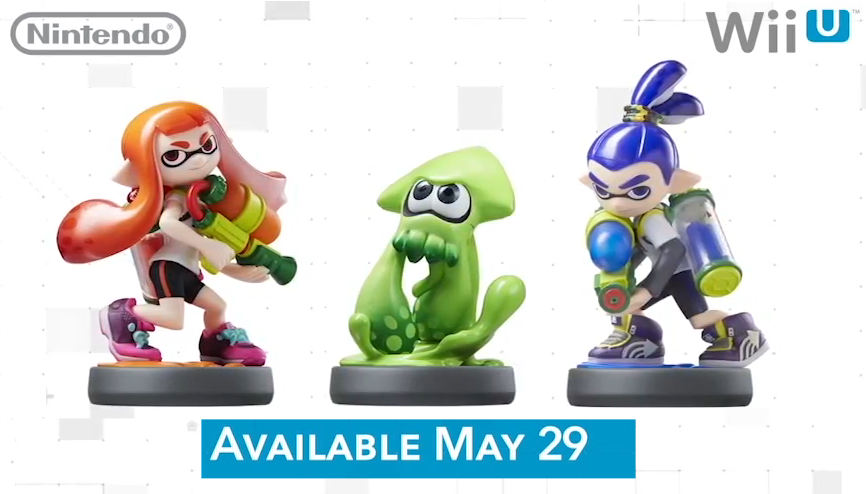
Bryan: Well explained Georgina, so to James I must ask, do you agree with Georgina that we need to examine the value of the base product before crying foul of on-disc DLC? Some may argue that, being on-disc DLC, on-disc content would be fair game to criticize with the base game since it is physically apart of it, while others might say there is an experience being provided by the amiibo "unlocking" the DLC so to speak. How do you feel about this?
James: I'd argue that just because amiibo are "new territory" for Nintendo, doesn't mean that the figures should be immune to criticism. Your argument that we should examine the base product before complaining about on-disc DLC is a little odd here; I'm not arguing against on-disc DLC here—although I do find it unethical, that is an argument for another day—my issue is the way that said DLC is enacted in regards to amiibo. Because the content is locked behind a plastic paywall, that is inherently limited, it means that even players that would wish to pay to get these bonuses might not be able to do so, and as I already mentioned, this seems at worst intentional and at best incompetent.
This only becomes worse when you realize that the game was marketed alongside these amiibo "bonuses"... the Splatoon Nintendo Direct put extra emphasis on using the 3 amiibos to unlock these costumes; in essence, the idea of using these costumes might have had an impact on whether or not someone picked up the title. Whether Splatoon offers enough content to fill a $60 release or not, this is inexcusable.
On another note, I find issue with commending Nintendo for releasing all this "free" content. Although some of it has undoubtedly been developed post release, it's also worth noting two things – Splatoon actually shipped with the completed data for some of these maps and weapons on release, but it wasn't until these updates that this content was "activated," and besides that, Splatoon only launched with 4 maps usable. Compared to other shooters, it's hard to say that Splatoon DIDN'T suffer a lack of content at it's release. One could even argue that it still suffers a lack of content to this day.
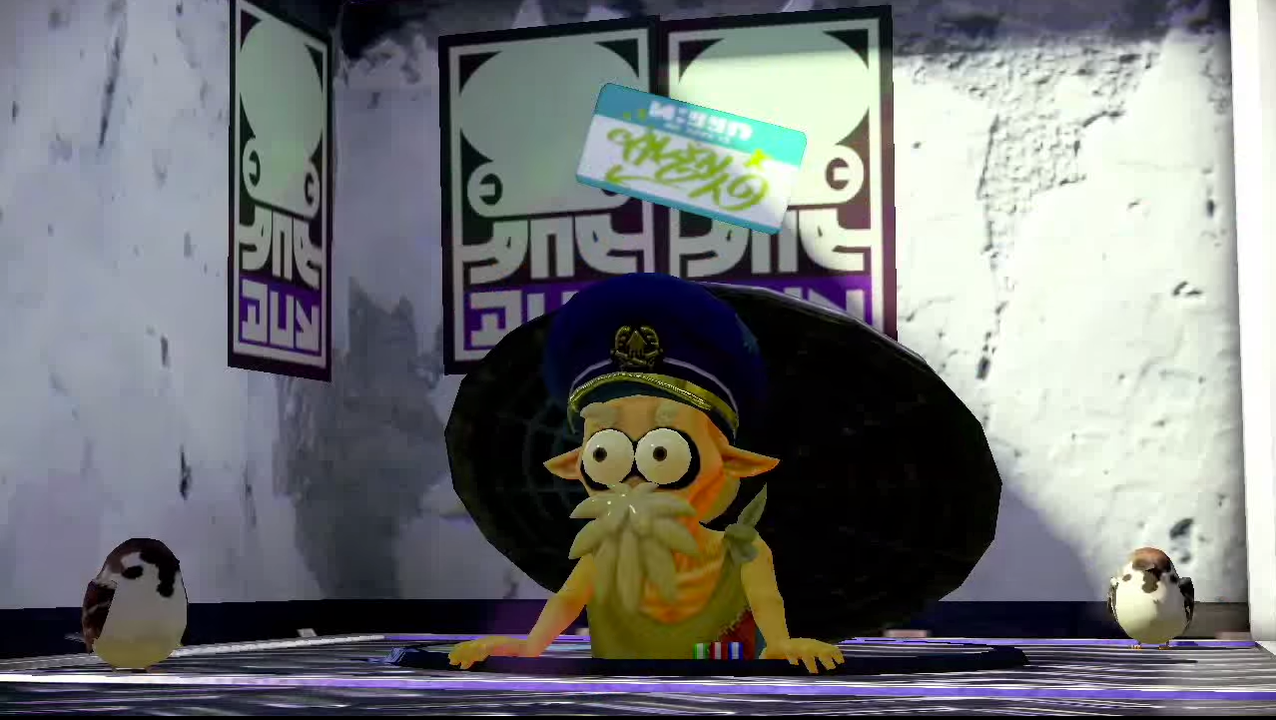
Bryan: I think an excellent point James makes here is that we now have two potential holdouts for obtaining content that is not otherwise available. While traditionally the only obstacle to obtaining DLC—outside of being convinced to buy it—is the price tag of said DLC, now that price tag has been moved to a physical object that can be—and often have been—made of limited availability. Before Georgina responds, I'd like to pose a hypothetical to James. Let's say Nintendo enacted an identical situation with Splatoon's DLC, where bonuses already on the disc were locked behind amiibo, onto another game, say Starfox for Wii U. Here a few missions and Arwing skins are locked behind Fox and Slippy amiibo. However, for a smaller price than an amiibo, players can just buy the missions and skins without an amiibo. Would this sit better with you, or would it undermine the "point" of amiibo in the first place?
James: I think that would probably undermine the ideas of amiibo as a whole, or at least the idea of what amiibo is now, although it would certainly be a preferable situation for the consumer. The thing that drives amiibo sales are two-fold – one, it's a generally rather high quality Nintendo toy of your favorite Nintendo character. At least for Shulk, there haven't really been any figures like that to begin with, and from a figure standpoint, they're a decent cost. However, the other part of the equation that drives these sales are probably the larger influence, and that's the aspect that I dislike the most. That would be the "exclusive" content, which usually comes on the disc, seems more often than not to have an impact on other people playing the game and can't be purchased another way.
Let's make it clear: I don't like the idea of the exclusive DLC either way, but what makes it truly terrible in my eyes is when you have a Splatoon scenario, where you can see other people flaunting their Samurai suits, or their Schoolgirl uniforms, etc when you're playing online. Mario Kart 8 has this issue to an extent with Mii Outfits, but it's nowhere near as bad there, as Nintendo has enough stock of amiibo to sort out that demand and only need to tap an amiibo once to permanently unlock that outfit, whereas you have to tap the amiibo whenever you want to try out the amiibo missions or unlock bonuses in Splatoon.
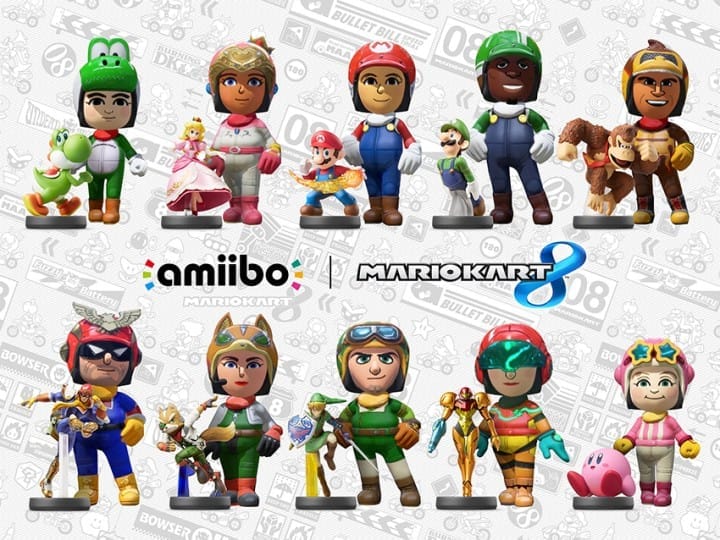
I think that amiibo have had good examples; Captain Toad's use of them is a good one. Its amiibo content was added after launch and doesn't add too much that is relevant. Hyrule Warriors, to a certain extent, is fine as well. The problem isn't necessarily amiibo I guess, but how it's been done. To that extent, though, would amiibo have sold as well if there was an alternative way to get all this content? I feel like for Smash amiibo, it wouldn't be a problem, but I feel like it's obvious that the Splatoon amiibo wouldn't have sold nearly as well had they not paywalled all that content. I think that's the question we should be asking about Splatoon if we're going to argue if Nintendo's DLC practices have been good, because I can't see a way that Splatoon's amiibo functionality wasn't deliberate—that they couldn't have seen that holding back disc-locked content was the best way to improve sales.
Bryan: Fantastically put James! Now Georgina, for you I pose this: During an interview in 2012, President and CEO of Nintendo Satoru Iwata said (through translation) "... Our goal is to create DLC in such a way that consumers do not feel that they have been cheated or deceived."Has Nintendo succeeded in this goal? Holding your opinion on the actual quality of the DLC, has Nintendo maintained their expressed desire to keep consumers from feeling cheated or deceived when implementing DLC (paid or free) in their software? Has Nintendo maintained a perfect level of honesty to its audience when advertising games that would later implement DLC?
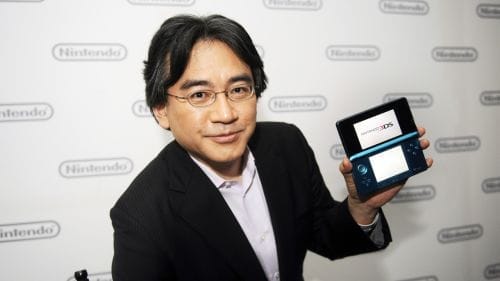
In terms of "feeling cheated," the problem is it's based on individual perception. I completely understand and as an amiibo consumer—I have all the smash ones to date—I enjoy the bonus of the locked costumes and goodies. On the other hand, I know that NA consumers who have a harder job buying amiibo could feel cheated as they can't purchase the DLC even if they wanted to. That being said, restocks are numerous and plentiful here in Japan and I'm sure Nintendo will implement this in NA soon.
Overall, the most important thing in advertising is clarity of information to the consumer and Nintendo is leading developers in this. You won't see Nintendo making outlandish claims that their products will "revolutionize" gaming the way Sony has.
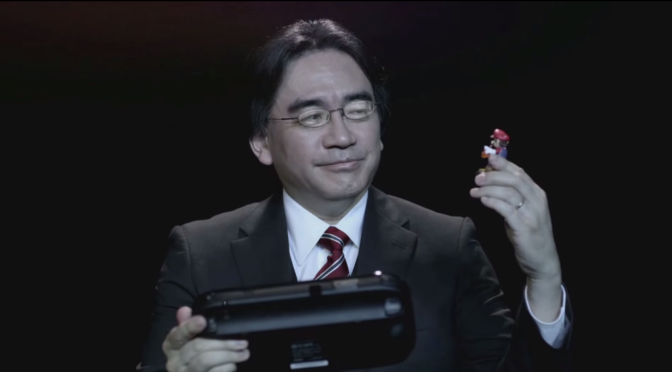
Bryan: Your arguments are sterling and well spoken Georgina!
Now we come to the final question. Here you will both "make your case" so to speak, without the chance to retort or counter argue each other. Before we begin, I'd like to thank both of you, Georgina Young and James Galizio for your time, dedication, and vigor during this debate. I think all three of us have had our views challenged and perhaps even seen some things in different lights!
Mario Kart 8's DLC is often cited as "DLC done right" for its fair prices, value, and releasing well after the main game released. However, the less mentioned of Mario Kart 8's DLC is often left out of this praise. One of Mario Kart 8's DLC was a free download for 3 Mercedes Benz cars. Not only was this inclusion paid for by Mercedes Benz, but the downloads were more than lightly suggested to Mario Kart players via an in game pop up, a full trailer on Nintendo's YouTube page, and a glowing icon on the bottom of the main menu for some time. Do you believe it was fair for Nintendo to charge for DLC while also featuring sponsored content in-game? Is asking for more money ok when you've already been sponsored by a car dealership, or is this justified given the free updates Mario Kart 8 received like 200cc, something they easily could have charged for but didn't? Is sponsored DLC an acceptable practice? Would you be ok with sponsored DLC in future titles, provided it would be done in a similar manner to Mario Kart 8's implementation? If yes, can you give a hypothetical example of how this could be done well? If no, can you provide a hypothetical example of how this could be done poorly?
In terms of deception I believe Nintendo is at the forefront of letting consumers know exactly what they are getting with a product. All content hidden behind an amiibo or DLC paywall is clearly marked as such in advertising. Nintendo makes the information on their products clear and available in all marketing strategies.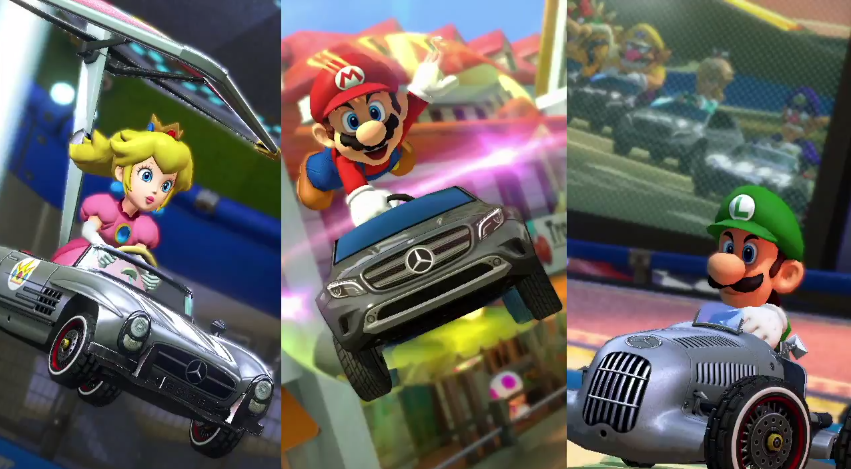
I have no interest in Mercedes, but there will be consumers who do and would enjoy this content. I can see the appeal. The important thing to remember with sponsored content is does this appeal to our consumer base? I believe in the Mercedes case it did. Nintendo have continued to be cautious of sponsored content, and I think this is a good move. The wrong kind could drive away fans. In the case of Mario Kart 8, they certainly walked the line between offering free content and obnoxious advertising well.
In conclusion, my opponent freely admits that a good majority of Nintendo's DLC policies are exemplary for the industry. He himself has quoted Captain Toad, Mario Kart 8 and Hyrule Warriors among others as examples of where Nintendo has been one of the most consumer friendly companies on the market.
His main qualm seems to be with Nintendo's implementation of Splatoon amiibo, and the way this suggests that the company wishes to push forward with DLC. But there are several things which need to be mentioned here.
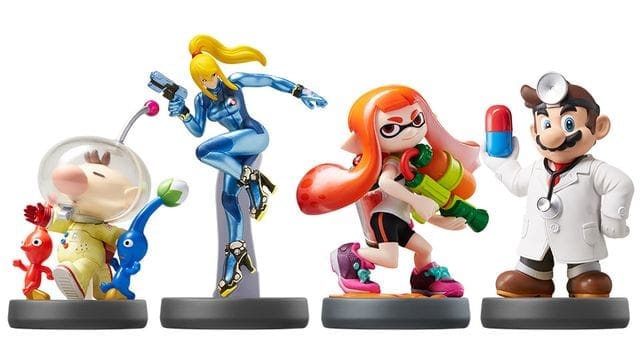
Firstly, restocks are coming. They are wide spread here in Japan and this policy will come to NA soon. Nintendo completely underestimated the desirability of amiibo, but trust me they want to sell them to you. All these ridiculous stories of pre orders and scalping are coming to an end. There will be enough amiibo for all those who wish to purchase them.
Even in Splatoon the bonuses that amiibo unlock are negligible. The current challenges are not new maps but simply add to the preexisting single player with time limits etc. We've all seen the samurai costume as it was lorded as amiibo exclusive content in all the advertising, but while it looks badass, it offers players no advantage in the arena.
I think this boils down to those who buy amiibo and those who do not. As someone who does, it's nice to receive these extra bonuses with my purchase. Perhaps I would feel more jaded if I wasn't so enamored with the little guys.
As for the future of Nintendo DLC, only time will tell. But based on their current track record I feel safe in Nintendo's capable hands.
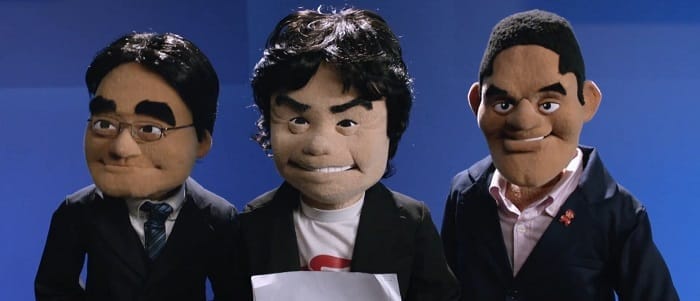
James: Thinking back, I believe I must've repressed the thoughts on the Mercedes-Benz DLC, as at the time, I was more than a little annoyed with it. I wouldn't go as far as to say that because of it the other DLC should've been free, but it was definitely something I wasn't that big a fan of. I don't really know what to say about the sponsorship as a whole; I do think that they shouldn't have had a very noticeable button on the main menu, at the very least, but I do think the other free content that's been added has made up for a lot of it. Obviously, the goodwill from the other DLCs might have had an effect on this, but I still would've rather that the Mercedes DLC hadn't been a thing, mostly due to it feeling rather out of place in the Mario universe.
In short, no, I don't think any other game should implement a sponsorship like MK8 did.
Have a tip, or want to point out something we missed? Leave a Comment or e-mail us at tips@techraptor.net
